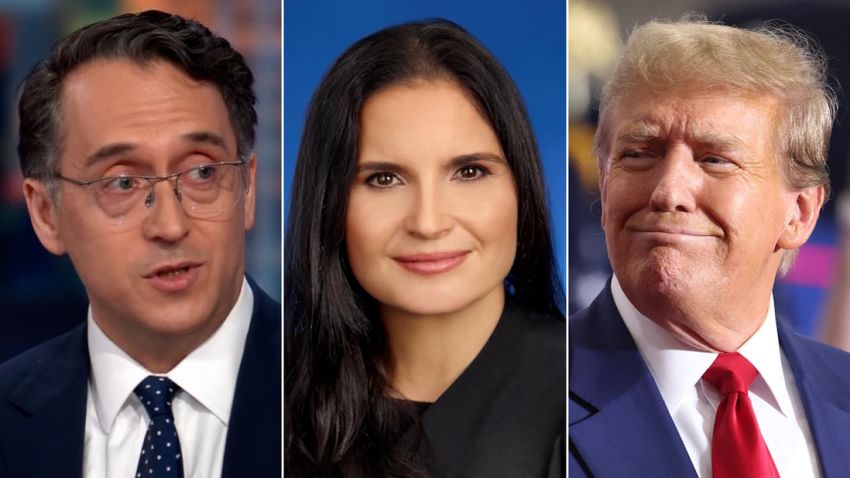On Monday, special counsel Jack Smith requested the Supreme Court to reject Donald Trump’s assertions of blanket immunity and to deny the former president the chance to postpone his trial regarding allegations that he tried to tamper with the 2020 election results.
Smith informed the court that Trump’s stance is unfounded in the Constitution, the history of the country, or the belief held by Americans that the president is subject to the law. Smith claimed that even in the unlikely event that the Supreme Court rules that previous presidents have some sort of protection, at least part of Trump’s actions might still be punished because they were private conversations and not at all like “official acts.”
All Presidents from the Founding to the Modern Era have known that after leaving office they faced potential criminal liability for official acts,” Smith told the court. The Framers never endorsed criminal immunity for a former President.”
Smith’s application was included in what has become the Supreme Court’s most hotly contested case of the current term. A broad ruling for Trump could undermine not only the special counsel’s election subversion case, but a litany of other criminal charges pending against him.
Arguments will be heard by the Supreme Court on April 25; a ruling is anticipated in July. Next week is when Trump must respond in writing to Smith.
Smith made an effort to refute Trump’s claim that lower courts would have to consider how a limited form of immunity for former presidents may be used in his case if such a type of immunity existed. A majority of the justices taking that course could cause a trial to be severely delayed.
However, the special counsel claimed that a large number of Trump’s activities were personal. He asserted that a president is not authorized by the Constitution to verify the election of his successor. Thus, Trump’s actions constituted a component of “a private scheme with private actors to achieve a private end: petitioner’s effort to remain in power by fraud,” Smith continued.
Last month, Trump submitted his own initial written submissions, arguing that if the court gave him protection, subsequent presidents would be open to “de facto blackmail and extortion while in office.” He claimed that previous presidents might have faced legal action for a variety of contentious decisions they made while in office.
Smith retreated from that stance in his most recent brief.
Smith stated on Monday, “A former president’s immunity from accountability for these alleged violations of federal criminal law is not necessary for the effective functioning of the presidency.” “On the contrary, the fundamental tenet of our constitutional system is that no individual, not even the president, is above the law.”
If the justices rejected his maximalist theory of presidential immunity, the presumed GOP nominee for 2024 also proposed a different path for them to take, which would help him accomplish the political objective of postponing a trial until after the November election. This was included in his filing from last month.
In that situation, the court might remand the case to lower courts for additional processes, delaying the trial for several months while it decided whether any partial doctrine of immunity would apply in his case.
Smith, though, seemed keen to guide the court away from that conclusion. Rather, he stated that a trial centered on Trump’s personal acts might begin if the Supreme Court decides that previous presidents are entitled to partial immunity.
“The indictment alleges substantial private conduct in service of petitioner’s private aim, so even if the court were inclined to recognize some immunity for a former president’s official acts, it should remand for trial,” Smith told the Supreme Court.
As to the special counsel’s argument, Trump’s utilization of official authority was only an extra tool to accomplish a personal goal, which is legally punishable due to his private actions, which was to prolong his tenure in office.
Two lower federal courts have rejected Trump’s argument that past presidents must have immunity from political retaliation when they leave office. In February, a three-judge DC Circuit panel unanimously rejected Trump’s stance.
Smith also criticized Trump for his prior claim that former presidents were exempt from the laws he was accused of breaking.
Trump “suggests that a criminal statute does not apply unless it expressly names the president,” according to Smith. “That extreme proposal is unfounded; it would exempt the president from almost all criminal laws, including treason, murder, bribery, and sedition.”
More information has been added to this story.
Connect with us for the Latest, Current, and Breaking News news updates and videos from thefoxdaily.com. The most recent news in the United States, around the world , in business, opinion, technology, politics, and sports, follow Thefoxdaily on X, Facebook, and Instagram .
